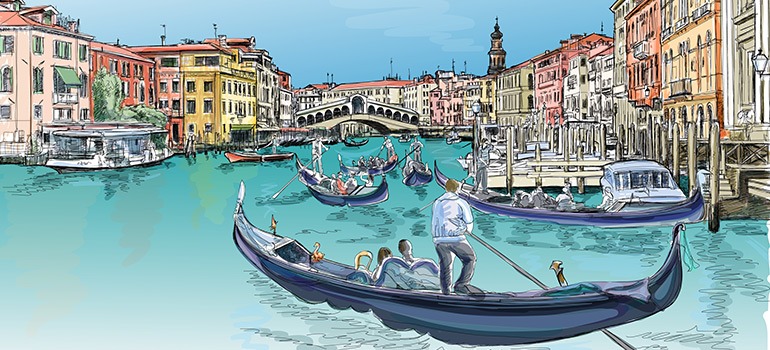“Just as individuals possess unique variations in hair colour, eye colour, and skin colour similarly, blood pressure can also be variable. Hence, it is important to understand specific individual target set by a trained clinician.” ~ Dr Kaninika Basu Saha, MD (UK)
Hypertension, commonly referred to as high blood pressure, is a prevalent health condition in India, particularly among the elderly population. It is estimated that one out of every three senior citizens in India is diagnosed with hypertension. Hypertension occurs when the force of blood against the walls of our arteries is consistently too high. This strain on blood vessels and the heart can lead to serious health complications over time. Several risk factors contribute to the development of hypertension, making it crucial for everyone to understand the condition and take proactive steps to manage it.
Dr. Kaninika Basu Saha mentioned briefly some of the risk factors associated with hypertension. These risk factors include age, family history, being overweight or obesity, lack of physical activity, poor diet, excessive alcohol consumption, and certain medical conditions like diabetes and kidney disease. Additionally, smoking and excessive caffeine intake can also contribute to the development of hypertension.
She stated, “Regular monitoring of blood pressure is crucial, especially when there are changes in medication. By diligently tracking blood pressure levels after starting a new medication, you can ensure that the blood pressure remains within a healthy range.”
Further, she suggested the following lifestyle changes that would help reduce high blood pressure.
Reduce salt intake: Consuming too much salt can cause your body to retain water, which can increase blood pressure. Reduction in salt intake can help you lower your blood pressure.
Eat a balanced diet: A healthy and balanced diet is crucial for maintaining normal blood pressure levels. Two-quarters of the plate should comprise carbohydrates, and one-quarter should include protein.
Eat enough potassium: Potassium helps balance sodium’s effects on blood pressure. An increase in potassium intake may help you lower blood pressure. However, those with kidney problems should be careful about the potassium intake. Good sources of potassium include fruits and vegetables, such as bananas, oranges, spinach, and tomatoes.
Maintain a healthy body weight: By maintaining a healthy body weight through a balanced diet and regular exercise, you can reduce the risk of developing high blood pressure or help lower it if you already have it.
Be physically active: Regular physical activity such as walking, jogging can help lower blood pressure and improve overall cardiovascular health.
Don’t smoke: Smoking damages blood vessels and causes the blood vessels to narrow, leading to higher blood pressure. Quitting smoking is essential for reducing the risk of high blood pressure and its complications.
Apart from this, Dr Kaninika also stated some of the major causes of fluctuating blood pressure.
Stress: Stress serves as a significant factor in high blood pressure. The impact of stress on our bodies is substantial, extending beyond just blood pressure to include elevated sugar levels, increased heart rate, and accelerated respiration rates.
Medications: The consumption of certain medications, such as paracetamol, cough syrups, and painkillers, can potentially cause fluctuations in blood pressure levels. Additionally, if you are on a regular regimen of blood pressure medication, inconsistent dosages can contribute to elevated blood pressure.
Caffeine: Consuming caffeine can cause a temporary spike in blood pressure. However, the effect may vary from person to person. Therefore, It’s advisable to monitor your response to caffeine and limit consumption if it affects your blood pressure.
Food: Sensitivity to food items such as sodium can also cause an increase in blood pressure. A balanced and healthy diet, low in sodium and rich in fruits, vegetables, whole grains, and lean proteins, can help maintain stable blood pressure levels.
Fever: When you have a fever, your body temperature rises. This increase in body temperature can also cause an elevation in blood pressure. However, once the fever subsides, blood pressure typically returns to normal.
Lastly, she mentioned,” Advancements in technology have revolutionized our world. Today, with the aid of technology, valuable information can be effortlessly shared with doctors for improved medical care and analysis. Support Elders also have their own set of solutions that deal with monitoring various health parameters, including blood pressure from the comfort of one’s home, on a real time basis and share it regularly.”
Categories
Venice in Italy

About a decade ago our member Ms C. Dutta had gone for a Europe tour with her son, daughter-in-law and grandson. She shares her eternal moments of the exclusivity of Italy and Switzerland.
During our Europe tour one of the most fascinating places was Italy, a country with a long Mediterranean coastline. We visited the capital city of Rome the Vatican museums there; Florence which has artistic masterpieces such as Michelangelo’s “David” and Brunelleschi’s Duomo; and Venice, the city of canals.
Switzerland on the other hand offered scenic beauties, snow capped mountains, skiing opportunities and so on. I experienced completely different geographical parameters in both the places.
In Rome we came across a lot of historical monuments such as the Colosseum, the Roman Chapels and Vatican museums. The Colosseum, an amphitheatre is one the best monuments, even if parts of it has ruined due to earthquakes and stone robberies. But it still is a main tourist attraction and one of the new seven wonders of the world.
The churches look wonderful with their pillared structures and the central dome. They are built in a circular form of the imperial mausoleums. Elegant facades lure you towards grand doorways. In these churches we saw the world-renowned masterpieces by some of the greatest artists in history, including Michelangelo, Bernini, Caravaggio, and Raphael! We also saw in one of the churches Michelangelo’s masterful sculpture of Moses.
The Vatican museums are mind-blowing and leaves you gaping at the masterpieces of Renaissance art and the Roman sculptures. Florence is also known for its culture, Renaissance art and architecture, monuments, museums and art galleries. It is also one of the most beautiful cities in the world. The Uffizi gallery holds a collection of priceless works of the Italian Renaissance whereas the Academy’s Gallery has housed Michelangelo’s “David”. The best was the Pope’s House, the Apostolic Palace. We attended his lecture in the audience hall and were fortunate enough to be introduced to him being Indians.
Venice seemed to be absolutely marvellous being the only city without roads and only waterbodies for thoroughfare. No wonder it is called the city of canals. An entire city built on nearly 100 small islands in a lagoon, seemed like a dream. The gondola ride was exquisite and an unforgettable experience.
We had experienced a complete scenic change in Switzerland. The Alps, the snow and the numerous lakes looked enchanting. I had a once in a lifetime experience skiing on the snow of the mighty Alps. The Rhine falls was equally spectacular. The landscape and villages around the river Rhine were stunning. We also visited a beautiful place located between two lakes.
The medieval town of Lucerne surrounded by mountains had a unique feature. Vehicles were not allowed here, so one could enjoy the historical buildings, lakes, walking on the low-lying bridges. It is also famous for Chapel Bridge and the Lion Monument. The top of the tallest cathedral of Switzerland – The Bern Cathedral gave us a majestic view of the Aare River and of the city around.
Every moment spent in these places have left a lasting impression on my mind. The serenity, the scenery, the waters everything was breath-taking.
During our Europe tour one of the most fascinating places was Italy, a country with a long Mediterranean coastline. We visited the capital city of Rome the Vatican museums there; Florence which has artistic masterpieces such as Michelangelo’s “David” and Brunelleschi’s Duomo; and Venice, the city of canals.
Switzerland on the other hand offered scenic beauties, snow capped mountains, skiing opportunities and so on. I experienced completely different geographical parameters in both the places.
In Rome we came across a lot of historical monuments such as the Colosseum, the Roman Chapels and Vatican museums. The Colosseum, an amphitheatre is one the best monuments, even if parts of it has ruined due to earthquakes and stone robberies. But it still is a main tourist attraction and one of the new seven wonders of the world.
The churches look wonderful with their pillared structures and the central dome. They are built in a circular form of the imperial mausoleums. Elegant facades lure you towards grand doorways. In these churches we saw the world-renowned masterpieces by some of the greatest artists in history, including Michelangelo, Bernini, Caravaggio, and Raphael! We also saw in one of the churches Michelangelo’s masterful sculpture of Moses.
The Vatican museums are mind-blowing and leaves you gaping at the masterpieces of Renaissance art and the Roman sculptures. Florence is also known for its culture, Renaissance art and architecture, monuments, museums and art galleries. It is also one of the most beautiful cities in the world. The Uffizi gallery holds a collection of priceless works of the Italian Renaissance whereas the Academy’s Gallery has housed Michelangelo’s “David”. The best was the Pope’s House, the Apostolic Palace. We attended his lecture in the audience hall and were fortunate enough to be introduced to him being Indians.
Venice seemed to be absolutely marvellous being the only city without roads and only waterbodies for thoroughfare. No wonder it is called the city of canals. An entire city built on nearly 100 small islands in a lagoon, seemed like a dream. The gondola ride was exquisite and an unforgettable experience.
We had experienced a complete scenic change in Switzerland. The Alps, the snow and the numerous lakes looked enchanting. I had a once in a lifetime experience skiing on the snow of the mighty Alps. The Rhine falls was equally spectacular. The landscape and villages around the river Rhine were stunning. We also visited a beautiful place located between two lakes.
The medieval town of Lucerne surrounded by mountains had a unique feature. Vehicles were not allowed here, so one could enjoy the historical buildings, lakes, walking on the low-lying bridges. It is also famous for Chapel Bridge and the Lion Monument. The top of the tallest cathedral of Switzerland – The Bern Cathedral gave us a majestic view of the Aare River and of the city around.
Every moment spent in these places have left a lasting impression on my mind. The serenity, the scenery, the waters everything was breath-taking.
